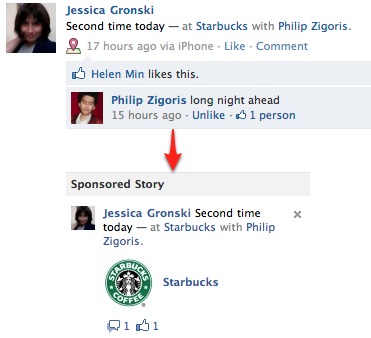Let’s imagine this situation:
A website, let’s call it TheScoop.org, publishes an article that, among other things, says that a high profile businessman named John Robertson is involved in an illegal drug ring. The article contains little to no actual evidence for this claim and relies on “some guy” as their source for the information. I’m sure we can all agree that the high profile businessman would at least have a case for defamation.
What if the following week, another website called HotBuzz.com writes an article that refers to the article published on TheScoop.org via hyperlink inside the text. Would HotBuzz.com also be guilty of defamation?
According to the Canadian Supreme Court, probably not.
Should sites have the ability to link to possibly defamatory content without fear of retribution? How about the right to quote from it and print the exact same defamatory content? Let us know in the comments.
The Court has just ruled that unless the hyperlink “presents content from the hyperlinked material in a way that actually repeats the defamatory content,” a hyperlink does not equal publication. In effect, as long as you refrain from restating the defamatory content on your own site, feel free to link away.
This decision comes from a case, Crookes v. Newton, that basically runs parallel to the fictional scenario I described above. The defendant, Newton, published an article about a defamation dispute between local businessman Crookes and a former associate. Newton linked to the supposed defamatory content written by the former associate, and Crookes sued Newton when he refused to take down the links.
Crookes’ argument was that the hyperlinks created by Newton connected to the defamatory content, and by publishing the links, he was in turn publishing the defamatory content himself.
The majority of the panelists of the Court held that hyperlinks are basically analogous to footnotes. Even though hyperlinks make the referenced information more easily accessed than a traditional footnote can, it is the same concept.
Here’s what they had to say about the fact that hyperlinks do not equal publication –
Hyperlinks are, in essence, references, which are fundamentally different from other acts of “publication”. Hyperlinks and references both communicate that something exists, but do not, by themselves, communicate its content. They both require some act on the part of a third party before he or she gains access to the content. The fact that access to that content is far easier with hyperlinks than with footnotes does not change the reality that a hyperlink, by itself, is content neutral. Furthermore, inserting a hyperlink into a text gives the author no control over the content in the secondary article to which he or she has linked.
A hyperlink, by itself, should never be seen as “publication” of the content to which it refers. When a person follows a hyperlink to a secondary source that contains defamatory words, the actual creator or poster of the defamatory words in the secondary material is the person who is publishing the libel. Only when a hyperlinker presents content from the hyperlinked material in a way that actually repeats the defamatory content, should that content be considered to be “published” by the hyperlinker.
According to the court, the traditional burden of proof in a defamation case simply involves showing how a defendant conveyed defamatory information to a third party. Usually, the manner in which the defendant conveys the defamatory content to a third party is irrelevant. If this traditional understanding is applied to the Newton v. Crookes case, then Newton is screwed. He undoubtedly became a delivery mechanism to a third party when he hyperlinked to the content.
The majority of the Court explained how this traditional understanding can’t be applied to hyperlinks –
Applying this traditional rule to hyperlinks, however, would have the effect of creating a presumption of liability for all hyperlinkers. This would seriously restrict the flow of information on the Internet and, as a result, freedom of expression.
Chalk one up to internet freedom. It appears that the Canadian Supreme Court understands the devastating effect “hyperlink liability” would have on the internet.
But let’s take a closer look at the last part of the majority decision – Only when a hyperlinker presents content from the hyperlinked material in a way that actually repeats the defamatory content, should that content be considered to be “published” by the hyperlinker.
Another Court panelist expounded on that scenario –
However, a hyperlink should constitute publication if, read contextually, the text that includes the hyperlink constitutes adoption or endorsement of the specific content it links to. A mere general reference to a website is not enough to find publication.
Does this leave the door open for a lot of blurred lines and subjective judgment?
Going back to our fictional scenario, we can imagine that the following link would be alright in the eyes of the Court:
…here’s TheScoop.org’s take on Robertson, if you are interested.
And we can surmise that this would be a no-no:
…and since John Robertson is a big time drug dealer, his opinions would be biased.
But what if we change it slightly, to this:
…here’s TheScoop.org’s awesome indictment of Robertson, for your reading pleasure.
Would that constitute “adoption and endorsement” of the linked content?
The Court specifically says that regurgitating the possibly defamatory content, even after sourcing it with a hyperlink, would constitute defamation. So this wouldn’t fly, according to this Canadian Court’s ruling:
I’m sure you all remember what TheScoop.org said about John Robertson, that he’s the leader of an underground drug ring and everything.
The big question out of all of this is what do you think constitutes publication when it comes to defamation online?
I have a feeling that most of us will agree that linking to an article without republishing any of the defamatory content does not equal defamation. But if an article links to defamatory content and reprints the same content, should that then be considered defamation?
In the U.S., hyperlinking is not considered publication. Do you think that citing an article should ever be considered publication of the content? Let us know what you think in the comments.
[Image Courtesy m.photography (Flickr), Hat Tip to Ars Technica.]











